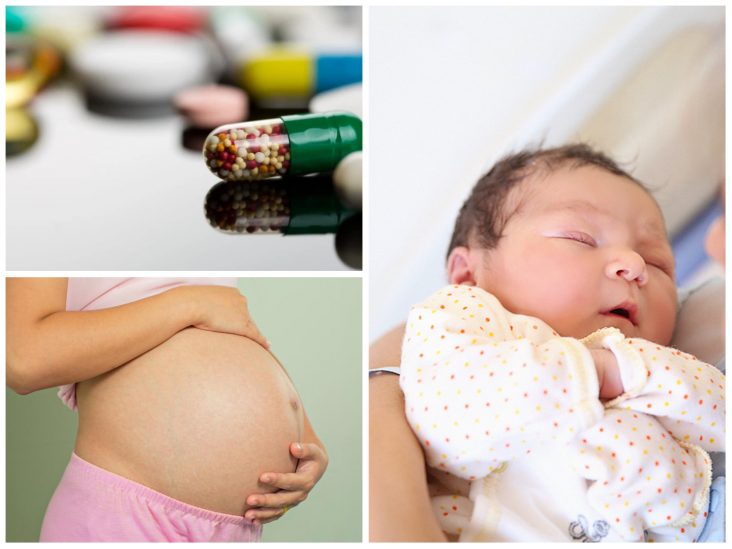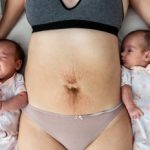Though it may be more challenging than at age 25, being pregnant after 36 is still achievable. You probably have a few acquaintances who became pregnant after 36 or even after 40.
However, if you want to comprehend why trying to conceive after the age of 36 is more challenging, discover the many pregnancy hazards after the age of 36, and determine your actual chances of becoming pregnant, keep reading!
Fertility and Age
Without a doubt, you’ve seen the plethora of articles highlighting women who put off starting families until after the age of 36 and struggle to conceive.
The first thing to understand is that infertility can affect both men and women of any age. Infertility can affect couples as young as 20 and as old as 40. Aspects other than age affect fertility.
But let’s assume that a woman’s fertility is normal. Her age is the only factor to be worried about. Most women’s fertility peaks in their 20s. Around the age of 32, a gradual but considerable drop starts. Yes, your chances of getting pregnant at 33 are lower than they were at 28. Fertility begins to diminish significantly more quickly around the age of 37.
According to research, your odds of becoming pregnant at age 30 are roughly 20% in any given month. In contrast, your chances are only 5% when you are 40 years old. This is not the same as your probability of becoming pregnant overall. This data is for each month, not for the entire year.
In addition, it is difficult to tell in many studies whether the decreased likelihood of pregnancy is caused by decreased fertility or by couples having less sex. In one study, which included 782 couples, the likelihood of conception was examined in relation to the day of sex before ovulation. The women tracked ovulation using basal body temperature tracking and discovered:
- The most fertile day was two days prior to ovulation for both younger and slightly older women.
- When they were at their most fertile, women between the ages of 19 and 26 had a 50% chance of becoming pregnant.
- It was 29% for women between the ages of 35 and 39.
Male Fertility and Age
It’s crucial to note that your partner’s age also matters while we’re talking about how age affects women. Male age does relevant, although male fertility drops differently from female fertility declines.
Recall the above-mentioned study, which revealed that women between the ages of 35 and 39 had a 29% chance of getting pregnant on their most fertile day? The same study discovered that a woman’s probability decreased to 15% if her boyfriend was five years older. Their chances effectively fell in half.
Just keep in mind that they are conception odds. You don’t necessarily have to give birth just because you become pregnant. Older mothers and fathers have higher miscarriage rates.
Increased Risks
Genetic issues are also more likely to occur as people age. This is the reason why women over 35 have a higher risk of having children with Down syndrome:3
- One in 1,250 women will become pregnant at age 25 and have a child with Down syndrome.
- It has a 1 in 952 risk at age 30.
- The likelihood is 1 in 378 by age 35.
Age also increases the chance of miscarriage:
- For women in their early 20s, miscarriages account for about 10% of pregnancies.
- A miscarriage occurs in 12% of women by their early 30s.
- 18% of pregnancies after the age of 35 result in miscarriage.
- 34% of pregnancies in the first 40 weeks result in miscarriage.
Why Fertility Declines
All of a woman’s eggs are there when she is born. The most oocytes (or eggs) are produced while a baby girl is still in the womb.
A girl fetus contains six to seven million eggs in her ovaries at around 20 weeks gestation. She will have just over a million eggs when she is born. Between 300,000 and 500,000 people are left by puberty.
Only 300 of these enormous numbers of eggs will ever mature and be released during the process known as ovulation.
Some people believe that the loss in fertility begins at menopause. This is untrue. Reproductive skills in our bodies begin to decline considerably earlier. The ability of the ovaries to produce mature, healthy eggs declines as women age.
Your ovaries will also react less favorably to the hormones that cause ovulation as you get older and closer to menopause. This includes fertility medications, which is why women with low ovarian reserves have less success with fertility treatment.
What if you maintain a healthy way of life? What if you practice good health practices, exercise regularly, eat well, and keep your weight in check? Even then, you will face the age-related natural drop in fertility.
Having said that, poor lifestyle choices can harm fertility. For instance, smoking has been observed to hasten the natural aging process of female fertility.
Success Rates After Age 36
Perhaps you believe that fertility treatments are all you need. Why fret about age when IVF is an option? Unfortunately, that is not how it operates.
Your body won’t react as well to the hormones in fertility medications as it does to your own hormones, which are responsible for ovulation.
The percentage of live births following IVF treatments using the mother’s eggs declines with age, citing data gathered by the Centers for Disease Control. Following IVF therapy, the live birth rates are:
41.5% of females under 35
for females aged 35 to 37, 31.9%
for females aged 38 to 40, 22.1%
In women aged 41 to 42, 12.4%
For females aged 43 to 44, 5%
1% for females over the age of 44
The good news is that while the uterus doesn’t appear to age as significantly as the ovaries, women’s ovaries do not function as well as they become older. When a woman’s own eggs are insufficient to conceive, she may use egg donor IVF.
All age groups of women who underwent IVF using fresh (not frozen) egg donors had an average 56% chance of becoming pregnant, with the likelihood decreasing with age. Using a woman’s own fertilized eggs, 36% of IVF implantations resulted in pregnancy.
Impact of Supplements
You’ve probably come across supplements and “natural therapies” promising to “reverse” ovarian aging if you’ve been looking for information on getting pregnant after 35, and especially after 40.
In actuality, there aren’t any vitamins or fertility therapies that have been shown to “undo” or slow down ovarian aging. The majority of the goods on the market are either old wives’ tales or have little to no scientific support. Many websites target desperate couples who want children and attempt to con them.
In women who are past the prime of pregnancy, DHEA supplementation may increase the success of IVF. DHEA supplementation enhanced the likelihood of conception and decreased the risk of miscarriage, according to a 2018 meta-analysis of numerous studies.
DHEA administration, however, may result in hormonal imbalance. Without the advice of a reproductive endocrinologist, it should not be taken.
No of her age, every woman should take folic acid, also known as folate, as a reproductive vitamin. While it’s always a good idea to consult your doctor before taking any fertility supplements, having enough folate is crucial to avoid some birth problems and may help to avoid miscarriage.
When to See Your Doctor
You can start by attempting to conceive naturally if you don’t have any signs or risk factors for infertility. Make sure you are informed on conception after age 36. Visit your doctor, nevertheless, if you aren’t pregnant after six months.
A year is normally recommended for women under the age of 35 before seeking assistance, but after that age, a year is simply too long.
Your age may or may not be a factor in the inability to conceive. It’s crucial to seek assistance right away since as you age, your chances of becoming pregnant, even with fertility therapy, will diminish.
Consult your doctor as soon as possible if you wish to become pregnant and are over 40. You don’t have to begin by attempting things on your own.
You can request rudimentary fertility testing. You specifically want your AMH and FSH levels to be checked. Your doctor will learn about your current ovarian reserves from this.
Avoid wasting time or money on at-home FSH or “menopause” testing at all costs. When it’s not, they might convince you that your fertility is fine.
See also: 7 Months Pregnant in Weeks




22 Pings & Trackbacks
Pingback:mad labs disposables
Pingback:ป้ายโฆษณา
Pingback:alpha88 สล็อต
Pingback:โปรโมชั่น เกมคาสิโนสดเว็บตรง SA GAMING
Pingback:บาคาร่า
Pingback:AMEBA ENTERTAINMENT
Pingback:Winchester SXP Defender 12 Gauge
Pingback:กาแล็กซี่คาสิโน ทางเข้าเล่นเกมระบบออโต้
Pingback:Hunter898
Pingback:ทางเข้า LOTTO LSM99 ซื้อหวยออนไลน์ เว็บอันดับ 1 ในไทย
Pingback:웹툰 무빙 무료보기
Pingback:บาคาร่า
Pingback:USA Gun Shops
Pingback:https://www.outlookindia.com/outlook-spotlight/the-14-best-press-release-distribution-services-of-for-enhanced-visibility-and-reach--news-301112
Pingback:คาสิโนออนไลน์ lsm99
Pingback:bonanza178
Pingback:บอลยูโร 2024
Pingback:จำหน่าย Access Control
Pingback:ขายสายแลน
Pingback:nagaway สล็อต
Pingback:พอตไฟฟ้า
Pingback:Stay in Latvia